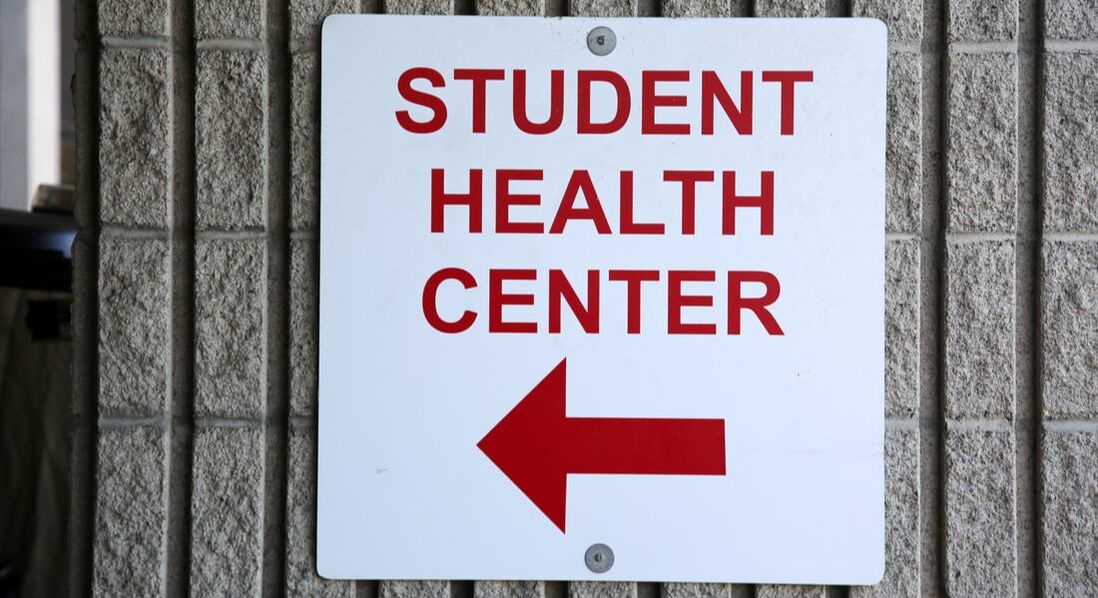|
At Student Health Centers across the United States, international students can access a wide range of healthcare services tailored to their needs. These centers serve as a one-stop destination for both physical and mental health support, offering everything from routine medical care to counseling services.
For instance, let's imagine Maria, an international student studying at a university in California. One day, Maria wakes up feeling unwell, experiencing symptoms of a cold. Unsure of what to do, she remembers that her university has a Student Health Center on campus. Without hesitation, Maria makes her way to the center, where she is greeted by friendly staff at the front desk. After a short wait, Maria is called in to see a healthcare provider. The provider listens attentively as Maria describes her symptoms and conducts a thorough examination. Based on Maria's symptoms and medical history, the provider diagnoses her with a common cold and recommends rest, hydration, and over-the-counter medication to alleviate her symptoms. Maria is relieved to receive prompt and expert care right on campus, without the need for an off-campus doctor's visit. But the Student Health Center offers more than just physical health services. Maria, like many international students, faces the stress and pressures of studying abroad. Feeling overwhelmed by coursework and adjusting to life in a new country, Maria decides to seek counseling support at the center. She schedules an appointment with a mental health counselor, who provides her with a safe and supportive space to discuss her concerns and develop coping strategies for managing stress and anxiety. Throughout her time at university, Maria continues to utilize the services offered by the Student Health Center, whether it's for routine check-ups, vaccinations, or ongoing mental health support. She appreciates the convenience, affordability, and expertise provided by the center, knowing that her health and well-being are in good hands. Here are the most important facts about the Student Health Center at a glance Services Offered: Student Health Centers offer a variety of services to address both physical and mental health needs. Some common services include:
Cost and Insurance: Many Student Health Centers offer services at low or no cost to students. Some schools include basic healthcare services as part of the student fees, while others may charge nominal fees for certain services or prescriptions. Additionally, some centers accept health insurance plans, including international student health insurance, which may cover a portion of the costs. It's essential to check with your school's Student Health Center regarding their specific pricing and insurance policies to understand what services are covered and any out-of-pocket expenses you may incur. Hours of Operation: Student Health Centers typically have convenient hours to accommodate students' busy schedules. While hours may vary depending on the school and the time of year, many centers are open during regular business hours on weekdays. Some may also offer evening or weekend hours for urgent care needs. Before visiting the Student Health Center, it's a good idea to check their hours of operation and appointment availability, which can often be found on the school's website or by contacting the center directly. In conclusion, Student Health Centers play a vital role in supporting the health and wellness of international students studying in the USA. From medical care to counseling services, these centers offer comprehensive support to help students thrive academically, emotionally, and physically during their time abroad.
1 Comment
As an international student in the United States, comprehending the intricacies of insurance jargon is fundamental to ensuring adequate coverage during your academic journey. Below, we've compiled a comprehensive list of 20 essential insurance terms tailored to international student insurance in the USA:
Protecting Your Health: Why Coverage for STDs is Essential in International Student Health Insurance11/14/2023 The issue of STDs is not just a medical concern but also a societal and educational one. Addressing it isn’t just about providing insurance coverage but also ensuring that the community is well-informed. With many insurance policies specifically excluding coverage for STDs, the implications for international students could be far-reaching and often misunderstood. Understanding STDs: A Necessary Step STDs are infections that are primarily transmitted through sexual contact, including vaginal, anal, and oral sex. They can be caused by bacteria, viruses, or parasites. Here are some key points about STDs:
It's important for individuals to be proactive about their sexual health, practice safe behaviors, and seek medical advice if they have concerns or symptoms related to STDs. Regular screenings and open communication with healthcare providers can play a significant role in preventing and managing STDs. Importance of Comprehensive Health Coverage One of the often underlooked facets of health insurance for international students is the exclusion of coverage for STDs in many policies. This limitation can have severe consequences for students. When students are uninsured seeking medical care for STDs might become financially burdensome, leading to delayed or inadequate treatment. Moreover, this can result in a larger public health issue, as untreated STDs can have severe health implications and contribute to the spread of infections. Our Solution: Comprehensive Coverage for STDs At Compass, we prioritize the health and well-being of international students. We understand the necessity for inclusive health coverage that caters to the diverse needs of students. Hence, we offer insurance policies that cover STDs, ensuring that students have access to necessary medical services without financial constraints. Educational Initiatives Aside from offering inclusive insurance, education and awareness play a pivotal role in tackling the prevalence of STDs. We always try to shed light on prevention, testing, and the importance of seeking timely medical care. Please see the extensive information on this topic on the website of Centers for Diseases Control and Prevention CDC: https://www.cdc.gov/std/products/default.htm For any further inquiries or information about our insurance policies, don’t hesitate to reach out. |
Archives
March 2024
Categories |
Need help? We are always here for you!
|
For eligibility, enrollment, or general questions such as brochure requests or information about a group plan:
Compass Student Insurance 116 Village Blvd, Suite 306 Princeton, NJ 08540 +1 781 356 1999 info@studenthealthusa.com or simply use our chat or contact form! |
All questions related to telehealth must be addressed to MDLive, powered by AllyHealth:
Toll-free: (888) 565-3303 |



